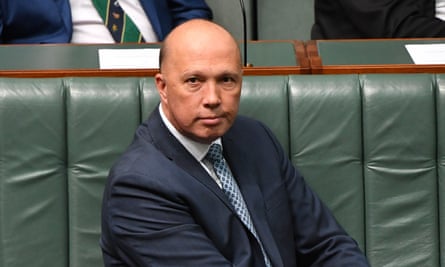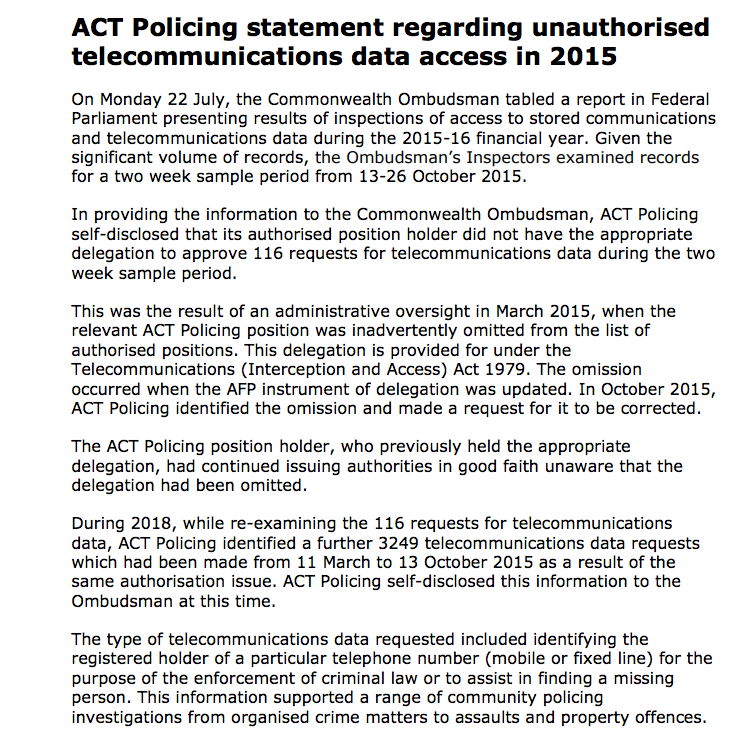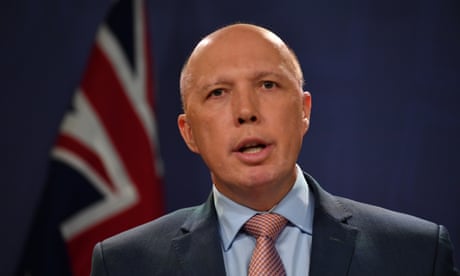The new disclosures include a total of 240 cases that resulted in information valuable to criminal investigations and one that “may have been used in a prosecution”.
In a statement on Friday, ACT Policing revealed the 116 unlawful metadata requests detailed in the report tabled in parliament on Monday are the tip of the iceberg, with a further 3,249 requests made from 11 March to 13 October 2015 under an invalid authorisation.
The revelation comes as Western Australia’s top cop has said there have been no consequences for police who unlawfully accessed a journalist’s metadata, contradicting Peter Dutton’s suggestionthey might be penalised.

In the statement ACT Policing revealed it is still seeking legal advice about how to deal with two cases where invalidly obtained metadata was used in “a missing persons case and a criminal matter where the data in question may have been used in a prosecution”.
“It is not appropriate to identify particular cases,” it said.
ACT Policing said that “steps were taken” to quarantine information from 240 telecommunications data requests which “generated information that was of value in progressing ongoing investigations and inquiries”.
 ACT Policing has admitted it unlawfully accessed citizens’ metadata a total of 3,365 times, not 116
ACT Policing has admitted it unlawfully accessed citizens’ metadata a total of 3,365 times, not 116 









